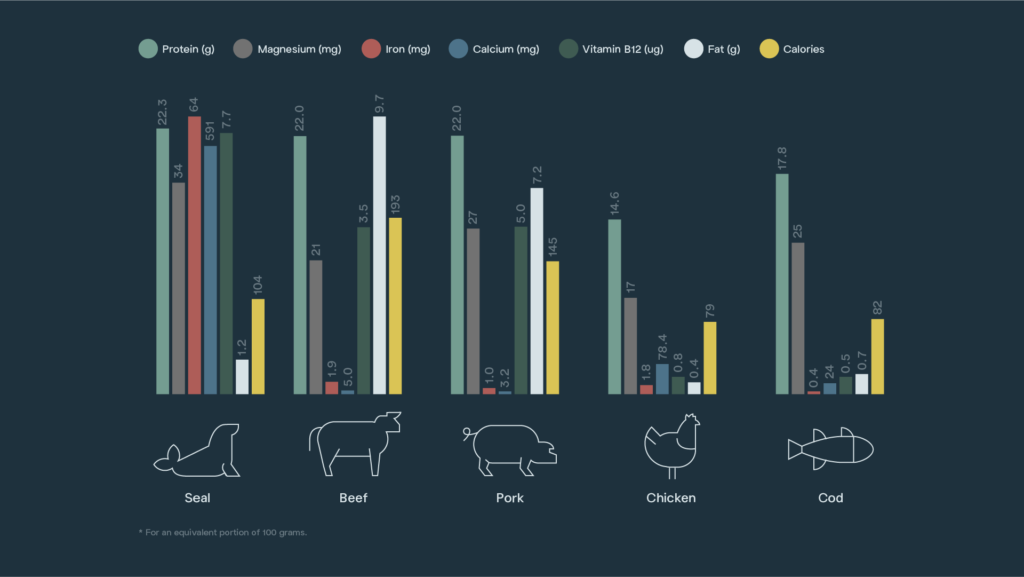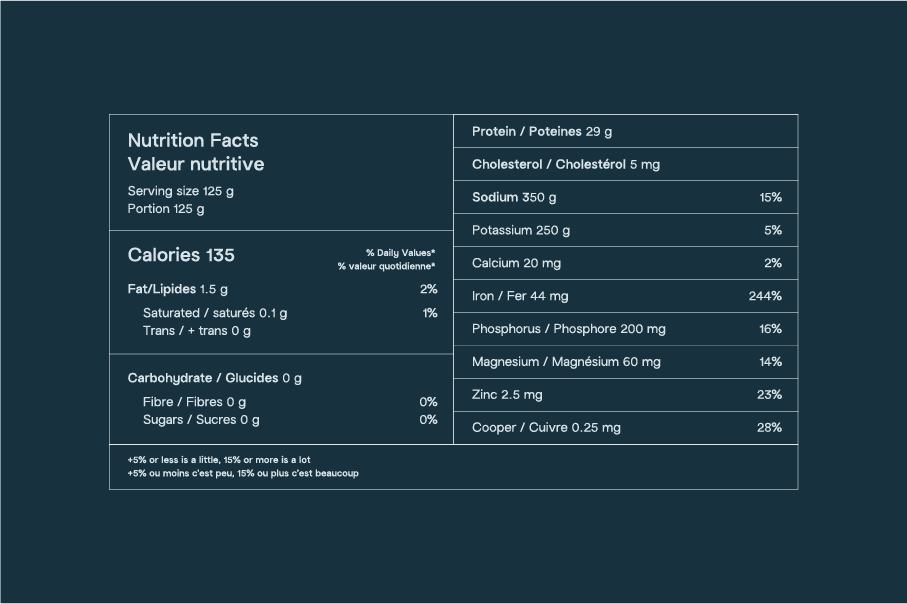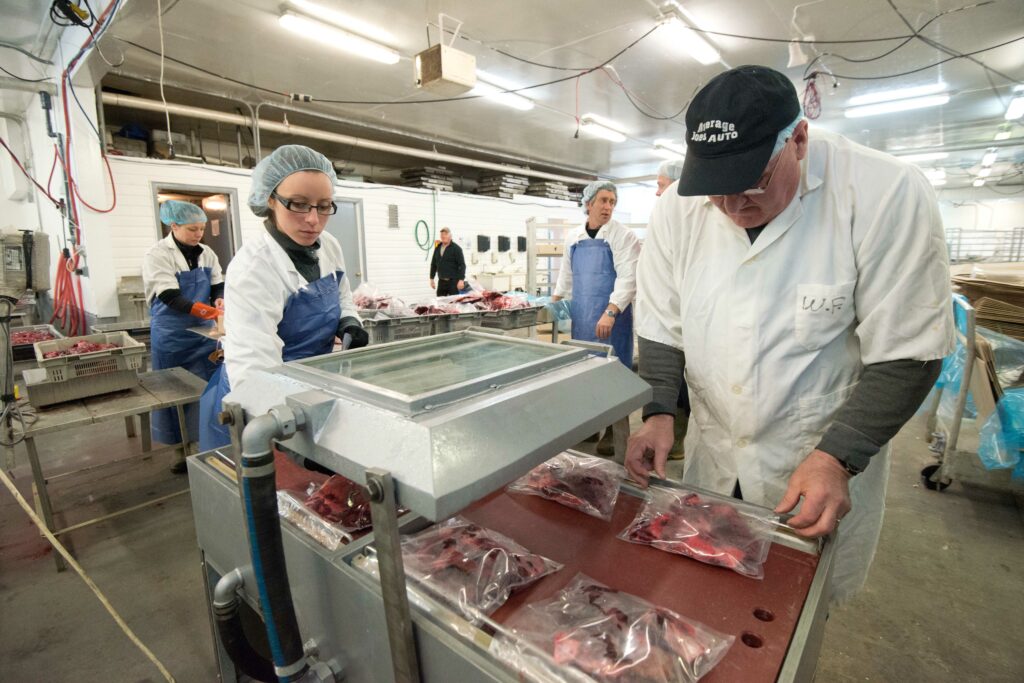Seal meat nutrition
Let’s look at the numbers. First, protein. Harp seal loin has 23 grams of protein per 100 gram serving; flipper meat has just slightly less at 21 grams per serving. That’s a lot more than chicken (14.6 grams) or fish (17.8 grams).
And while beef and pork have close to the same amount of protein as seal, seal is far lower in fat—less than 2% fat, in fact, while beef, for example, averages 23%. Seal meat also has many times the amount of iron and calcium of those other protein sources, and significantly more magnesium and vitamin B12.




